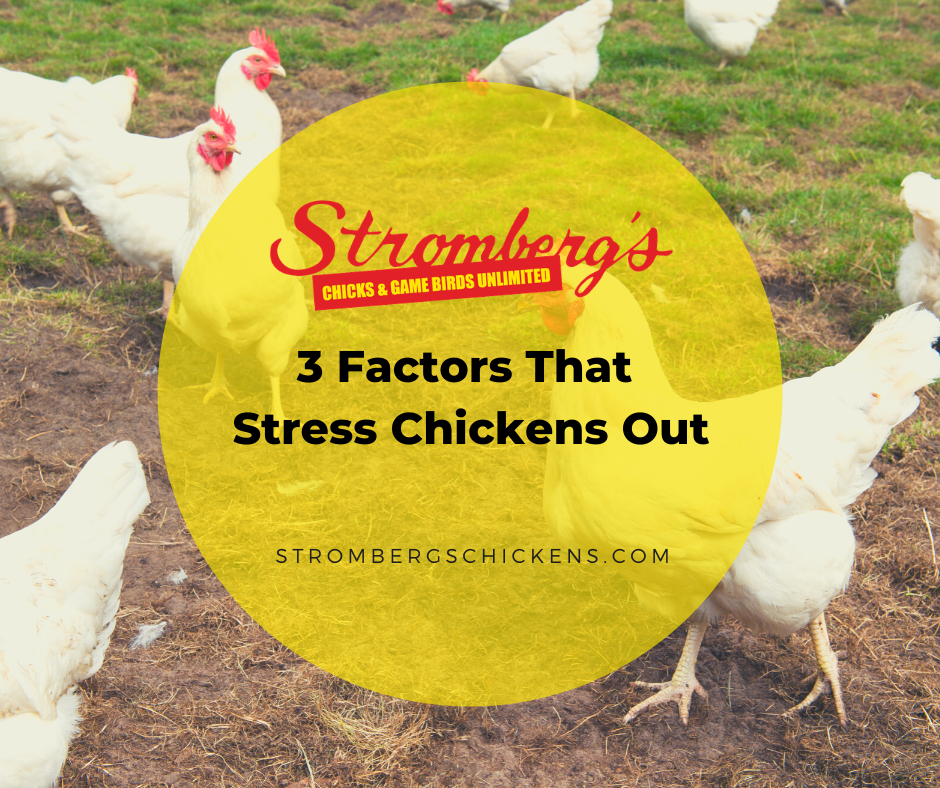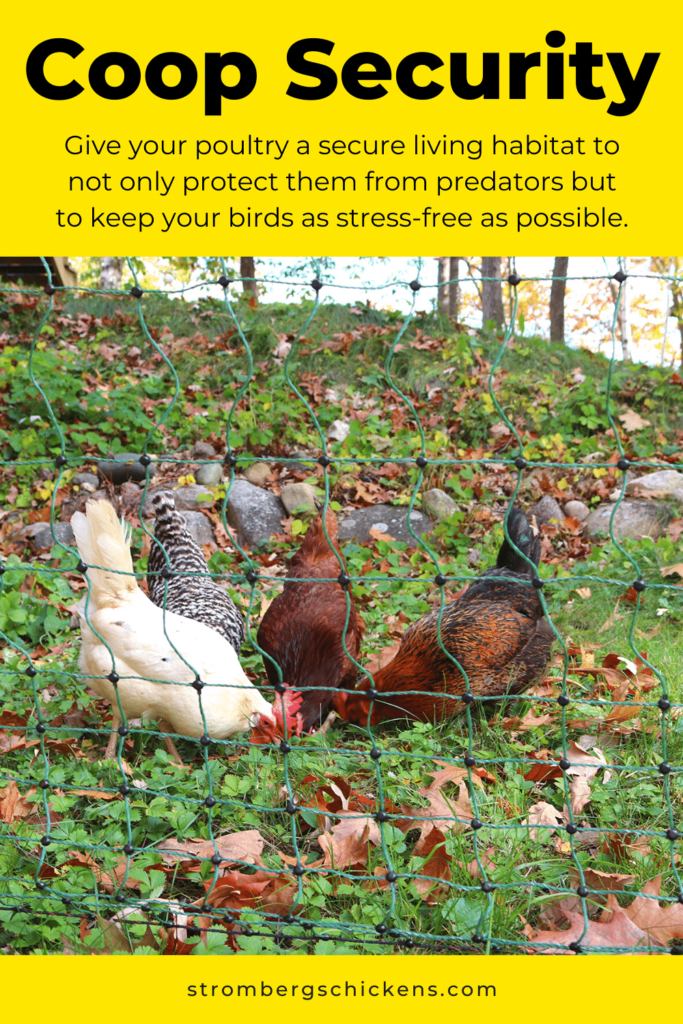3 Factors that Stress Chickens Out
Like any animal, chickens can experience stress due to both physical and psychological factors. This stress can negatively affect more than your birds’ moods. Stress in chickens influences their health, laying abilities, and overall quality of life.
You owe it to both yourself and your flock to make everyday life as stress-free as possible. By removing stressors in your chickens’ environment, diet, and flock interactions, you can create a healthier home for every bird in your coop. Learn more about the various factors that stress chickens out with this guide.

ENVIRONMENTAL FACTORS
Environmental factors are perhaps the easiest stressors to identify. Whether it’s a lack of comfort or a lack of safety, a poor coop environment can prove detrimental to the health of your birds. Lighting plays a major role in keeping your birds happy. A sudden change in the amount of daylight your chickens receive can cause stress, which is why you should take care when using supplemental light during the winter.
A damp or drafty chicken coop can also stress out your birds—as well as create an ideal breeding ground for bacteria and diseases. Finally, coop security plays a major role in keeping your chickens free of stress. When predators can sneak into your coop or run, the sense of fear and danger takes its toll on your birds, even if they don’t come to any physical harm.

NUTRITIONAL FACTORS
Diet affects mood, even in chickens. You should pay attention to the kind of feed you use for your flock. Younger birds will need starter or grower feed. You might also want to use a specific layer feed to keep your hens as healthy and productive as possible.
However, there are other nutritional factors that stress chickens out. On top of having healthy, nutritious chicken feed, your chickens need to be able to access their food with as little stress as possible. A food shortage or excess bullying around feeders can harm chickens that are lower in the pecking order. Make sure everyone has enough by using multiple feeders and keeping an eye out for overly aggressive squabbling.
SOCIAL FACTORS
All chicken flocks squabble a little bit. This behavior is a natural part of establishing and maintaining the pecking order. However, stressors like overcrowding, particularly aggressive birds, or too many roosters can lead to problems within your flock.
Keep an eye on your birds’ behavior so that you can stay on top of any social issues that arise. If a certain member of the flock is too aggressive to live peacefully in the coop, you might have to get rid of them. It also helps to have plenty of roosting, laying, and recreational space in and around the coop.
Install comfortable roosting bars and purchase chicken nesting boxes for sale from Stromberg’s Chickens to ensure you have room for everyone. When everyone has the chance to stretch their wings, bullying and squabbling occur far less often.
Be sure to check out our range of chicken coops, pens, and other housing supplies to keep your flock stress-free!

